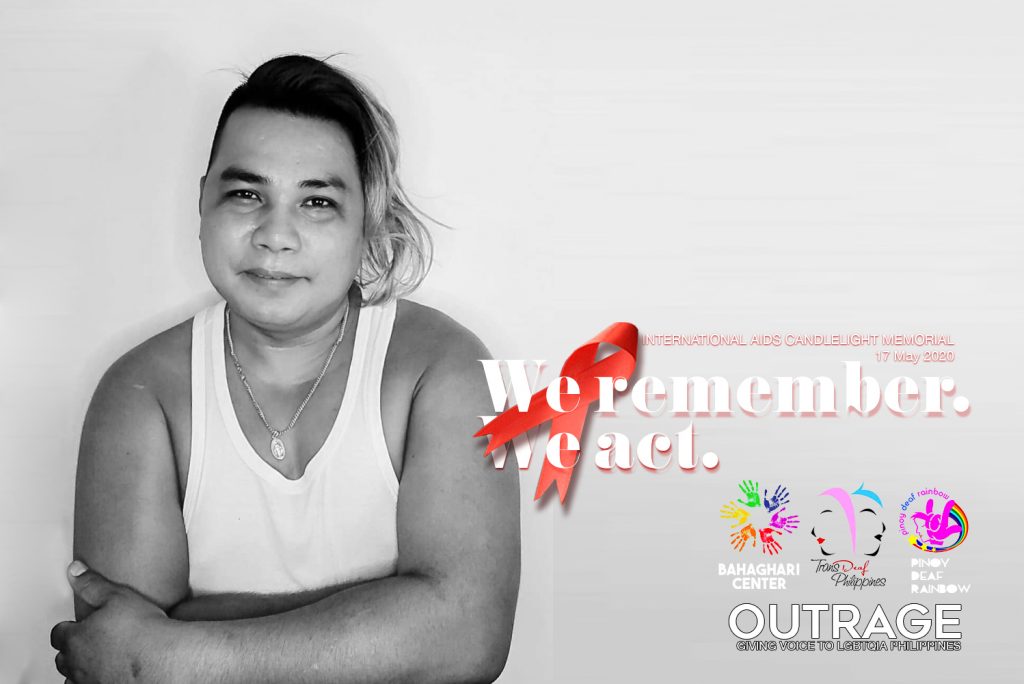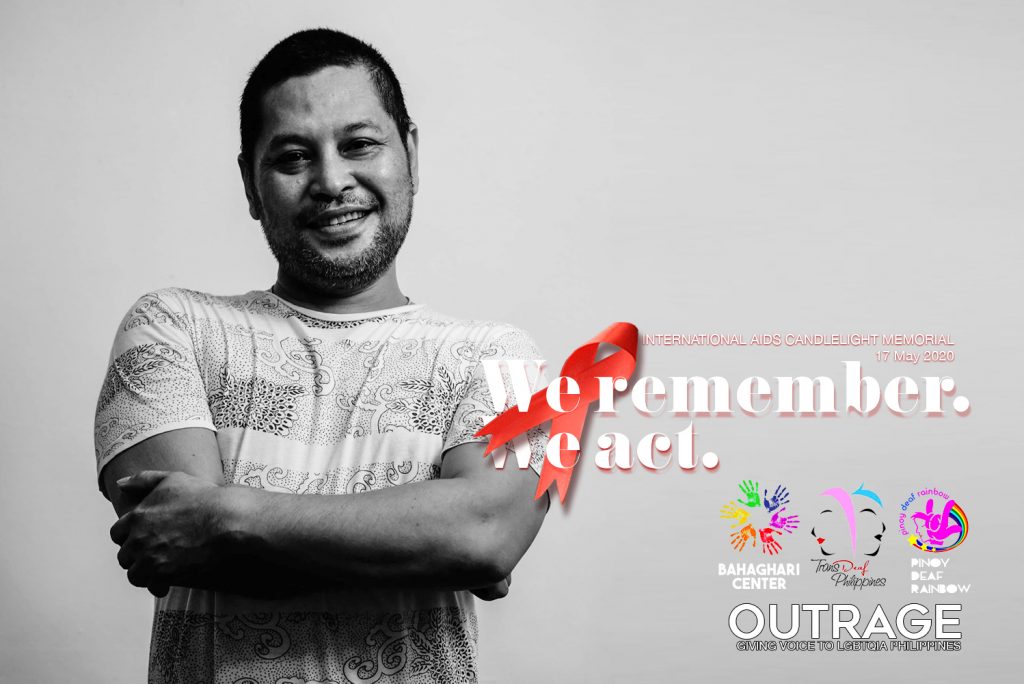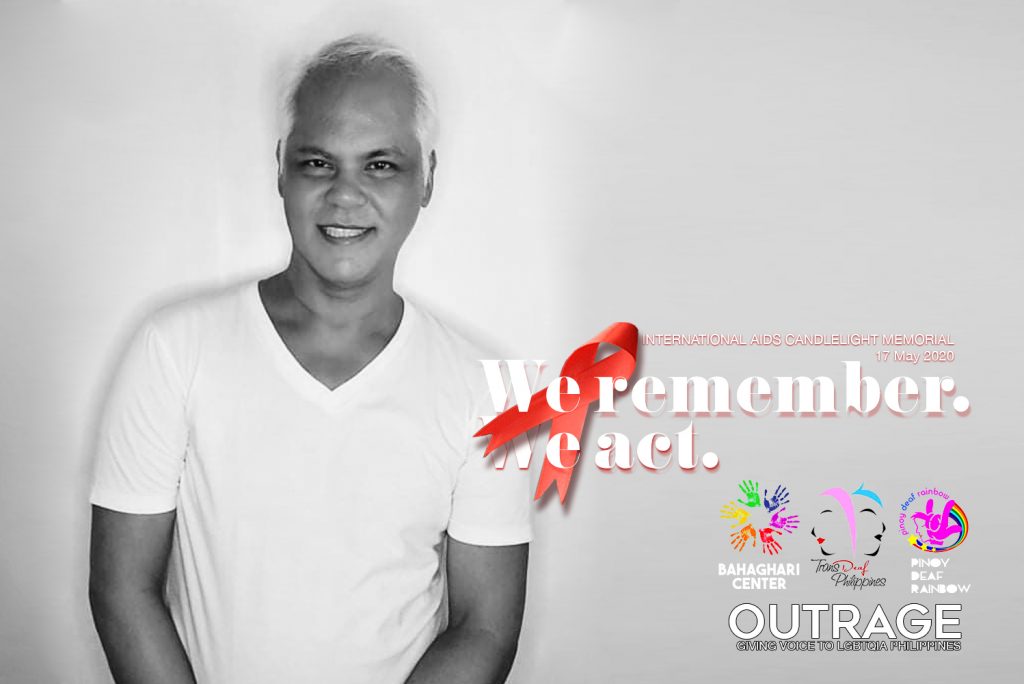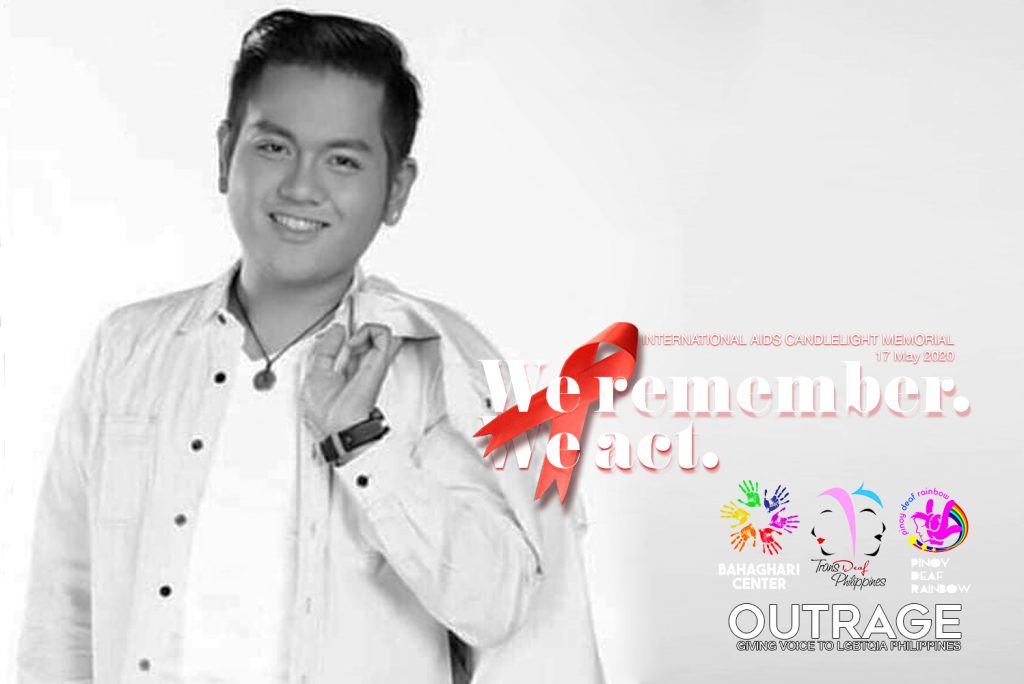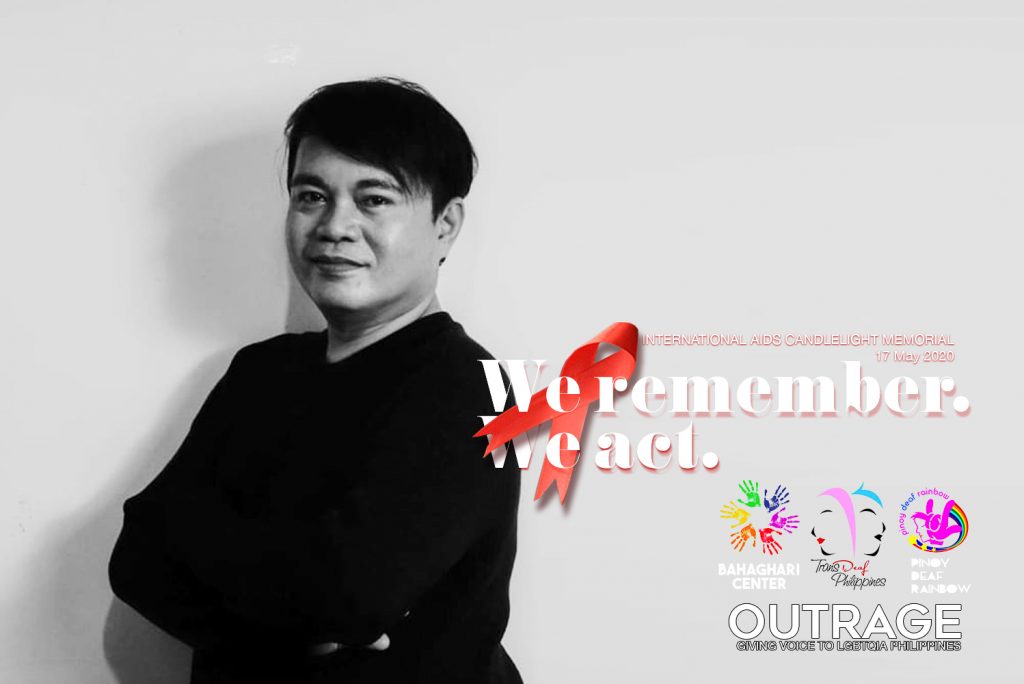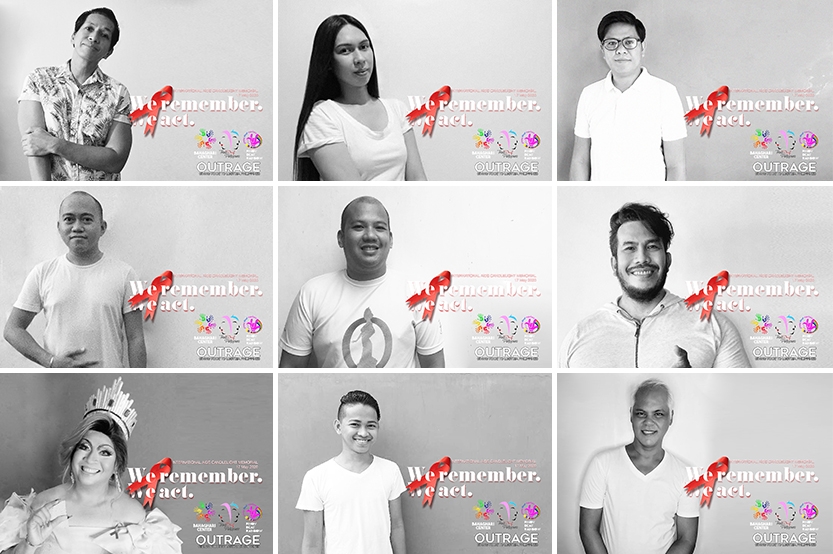In September 2015, Stephen Christian Quilacio asked Michael David dela Cruz Tan, editor in chief of Outrage Magazine and concurrent executive director of Bahaghari Center for SOGIE Research, Education and Advocacy, Inc. (Bahaghari Center) if he wanted to join a hospital visit to a person “suspected” to have HIV. At that time, Tan was visiting Cagayan de Oro City in Northern Mindanao, documenting HIV-related efforts of faith-based organizations (FBOs) for the National Council of Churches in the Philippines (NCCP).
Lor’s case was “suspected” because, while he kept saying he already had himself tested and that he’s HIV-negative, the attending physicians may have known otherwise but were still waiting for the patient’s confirmatory test result (from Metro Manila).
“Lor (not his real name) was having a hard time doing just about everything,” recalled Quilacio, who is also Bahaghari Center’s northern Mindanao coordinator. But “through it all, he was adamant in denying the probability that he may have HIV.”
Two weeks after that hospital visit, Lor passed away; this time, from confirmed AIDS-related complications.
Lor’s case is actually still not rare.
From October to December 2019 in the Philippines, for instance, 116 people died from AIDS-related complications. From January 1984 to end-December 2019, 3,730 Filipinos with HIV already died. And – this is worth stressing – this is only the reported cases, which may be lower than the real figures because of under- or non-reporting.
For Tan, the saddest part of this is that “we’re at a time when we’re often told that HIV is no longer a death sentence.” He added that “for many, it still is.”
And exactly because many lives continue to be lost to HIV and/or AIDS that the world marks the International AIDS Candlelight Memorial (IACM) every 17th of May, as a time for everyone to remember these lives lost. Started in 1983, IACM has since evolved to also honor those who dedicate their lives to helping people living with and affected by HIV.
Themed “We remember – We take action – We live beyond HIV“, this year’s IACM is said to be “much more than just a memorial” as “it serves as a community mobilization campaign to raise social consciousness about HIV and AIDS. With almost 38 million people living with HIV today, (it) serves as an important intervention for global solidarity, breaking down barriers of stigma and discrimination, and giving hope to new generations.”
“This is apt,” said Quilacio, “because even now, we still need to act to really make an impact on HIV.”




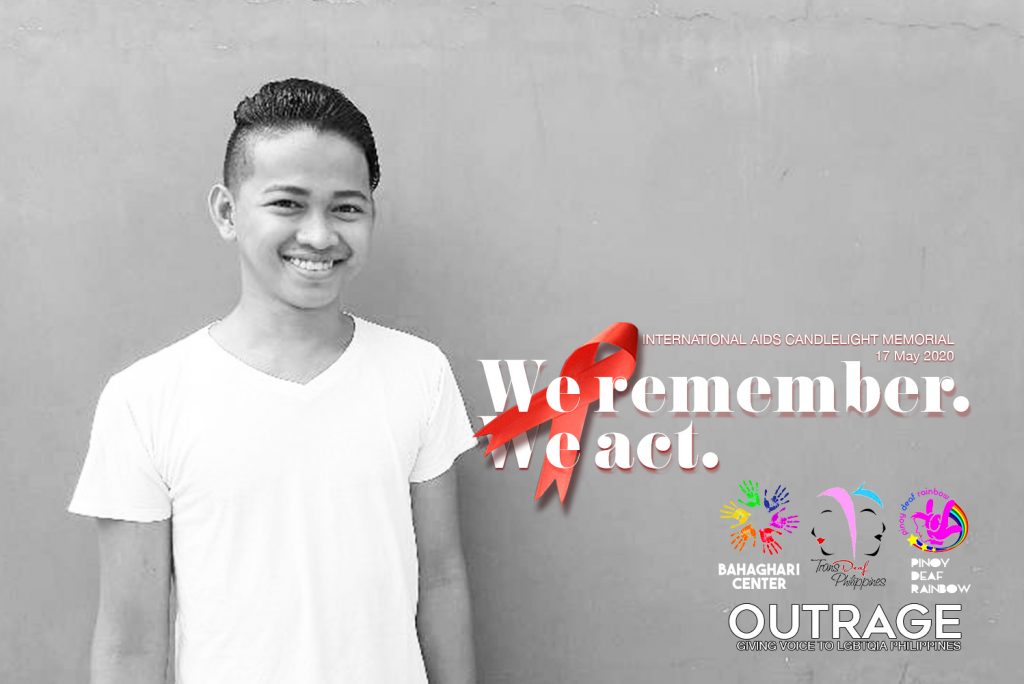

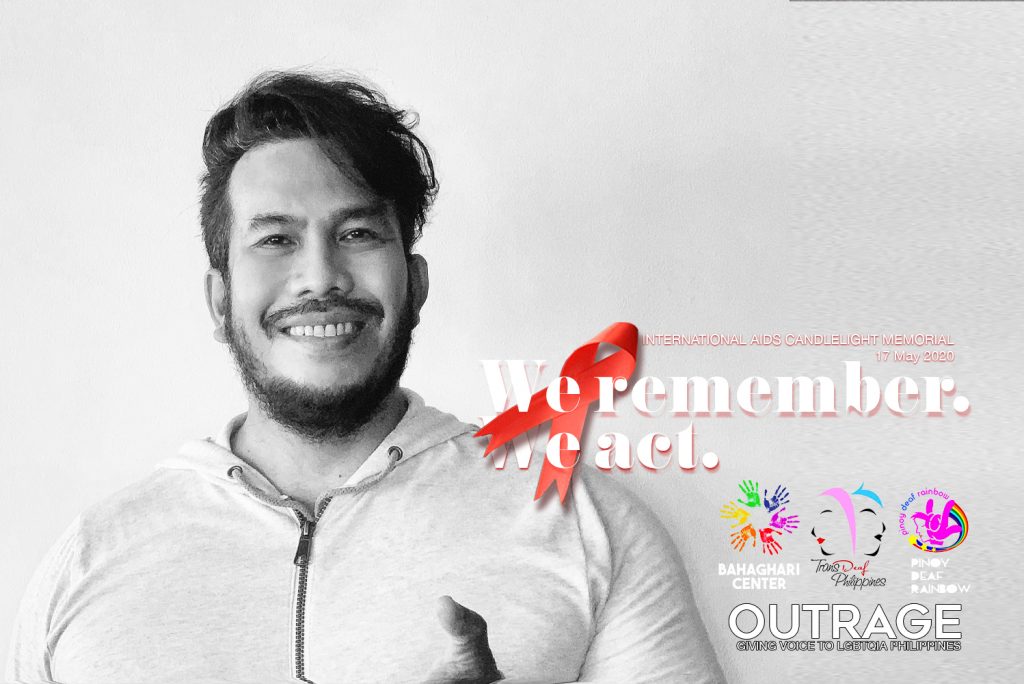
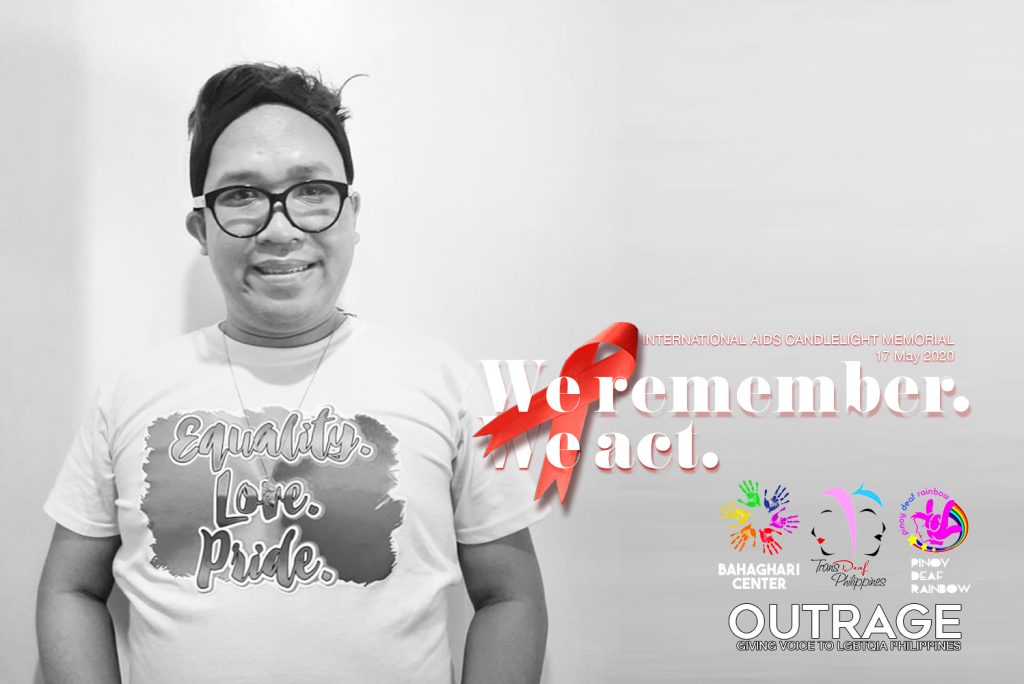

STILL AN ONGOING STRUGGLE
There are issues that continue to make the lives of PLHIVs, particularly in resource-limited location like the Philippines, difficult/challenging.
In the Philippines, at least, the HIV situation continues to worsen.
To start, the rate of infection keeps getting higher – i.e. 35 Filipinos now get infected with HIV every day. And from October to December 2019, there were 3,029 newly confirmed HIV-positive individuals reported to the HIV/ AIDS & ART Registry of the Philippines (HARP). Sixteen percent (474) had clinical manifestations of advanced HIV infection at the time of testing.
Younger people also continue to be infected with HIV. In HARP’s report, almost half of the October-December 2019 cases (49%, 1,475) were 25-34 years old, and 31% (926) were 15-24 years old at the time of diagnosis.
Then there’s the stigma that leads to discrimination, said Quilacio. “It remains common to hear stories about PLHIVs kicked out of their homes, or from work because of their HIV status.”
Close to Quilacio’s heart is the “disconnect” in the services offered in metropolitan areas versus those in provinces/rural areas. “As a Mindanawon activist, we know that there are supposedly ‘must-have’ services that are not provided to us – e.g. viral load, and even regular/steady supply of anti-retroviral medicines.”
And then there, too, is the profiteering that happens in the HIV community – e.g. organizations supposed to render life-saving services not doing so unless they profit from PLHIVs.
According to Ico Rodulfo Johnson, who helms The Red Ribbon Project, other issues have been emerging, seeming to steal attention away from HIV – e.g. Covid-19.
However, “despite (these), we continue to fight for our rights to improved health care, for awareness and education and against stigma and discrimination related to HIV,” he said. “The challenge is greater but our passion for the HIV advocacy is stronger.”
And this – the stronger passion that pushes people and/or organizations to act – is what’s needed.

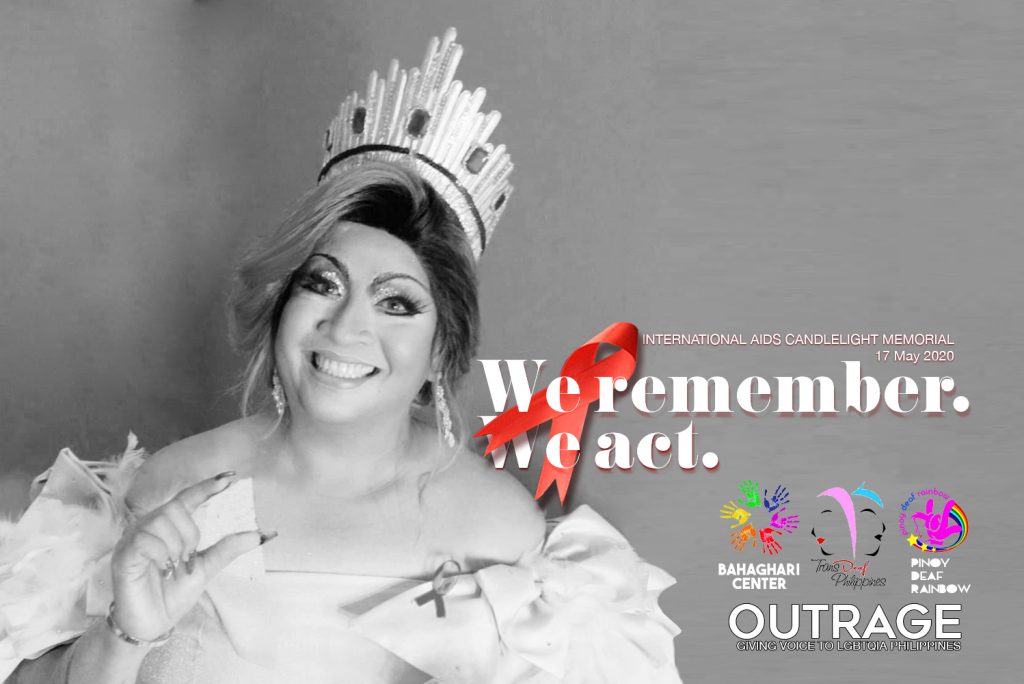
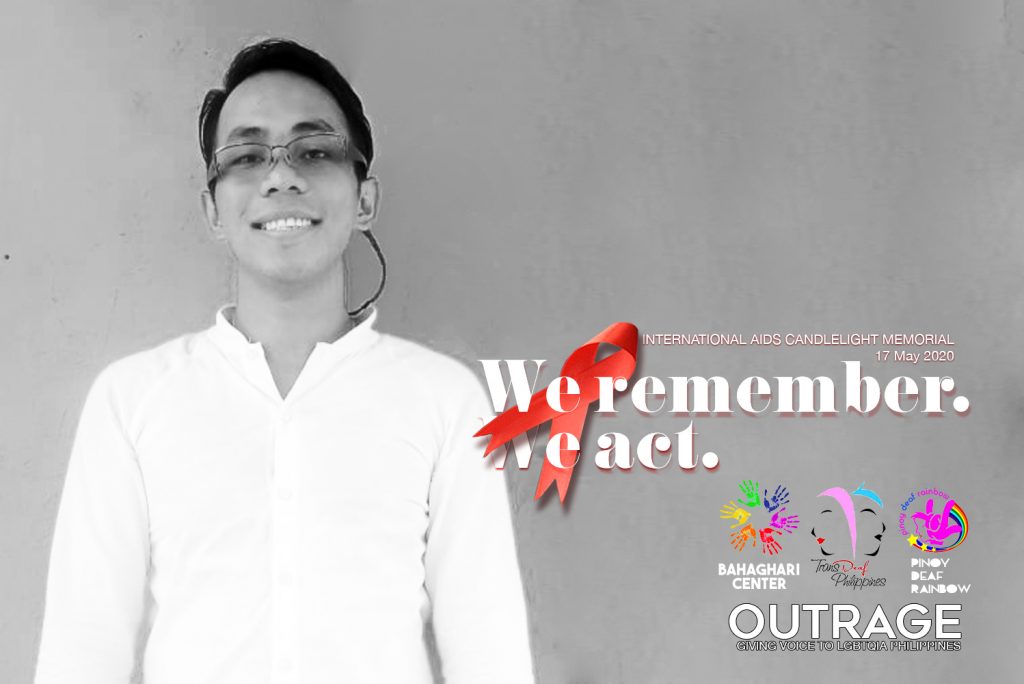
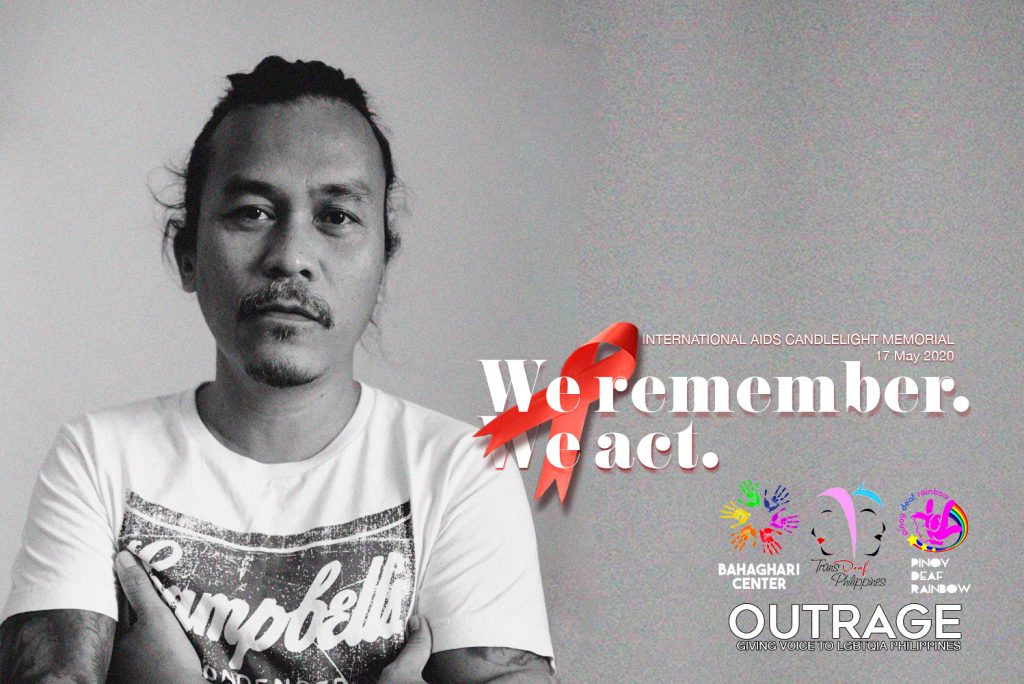
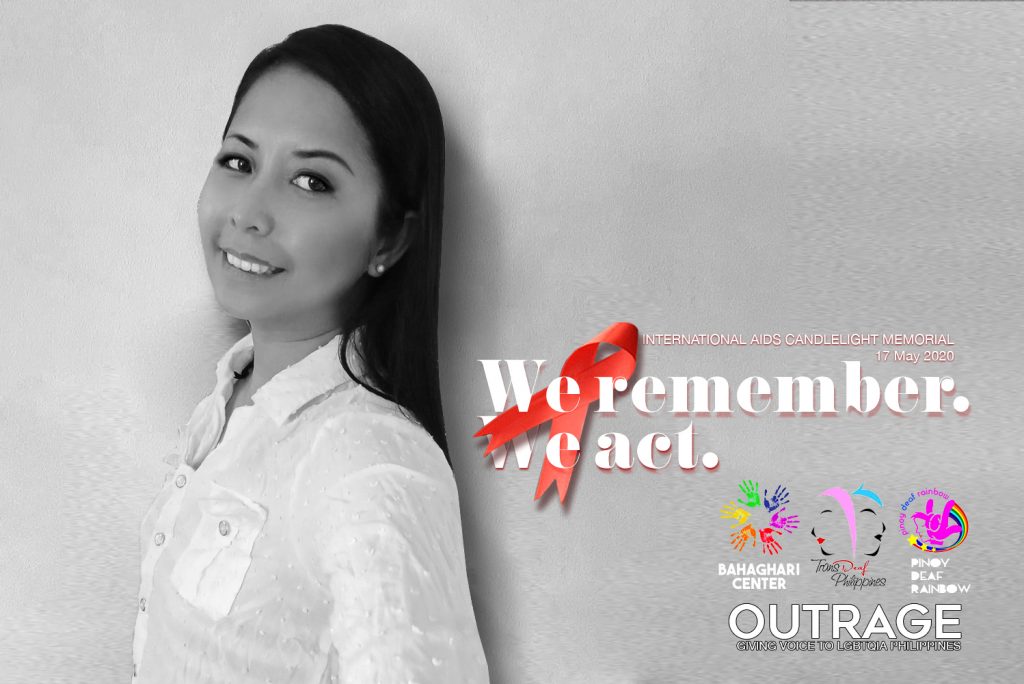

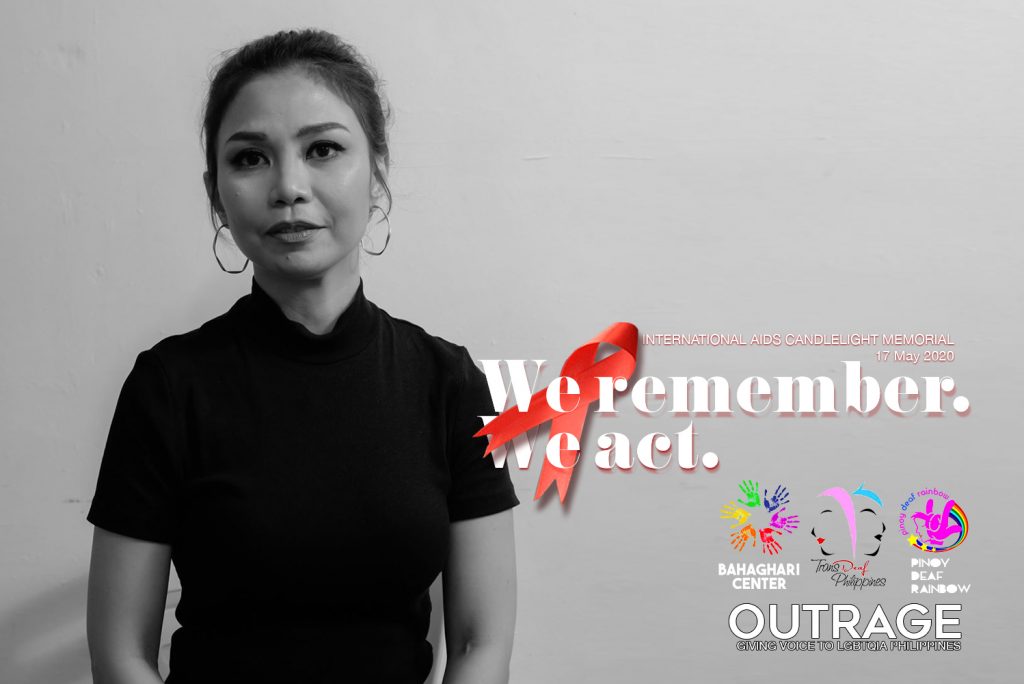
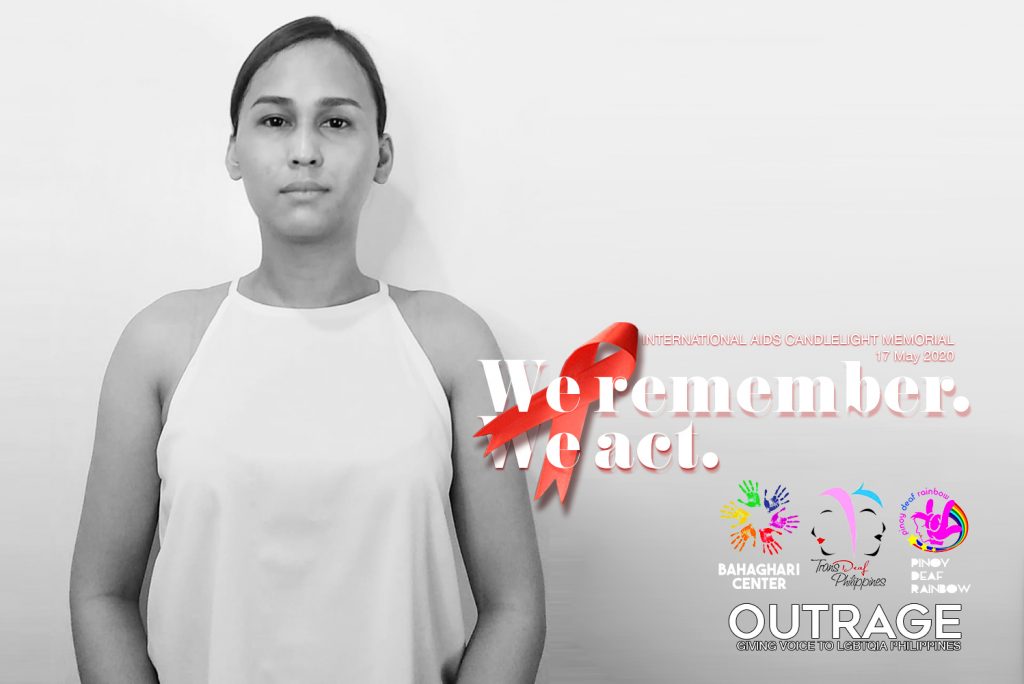
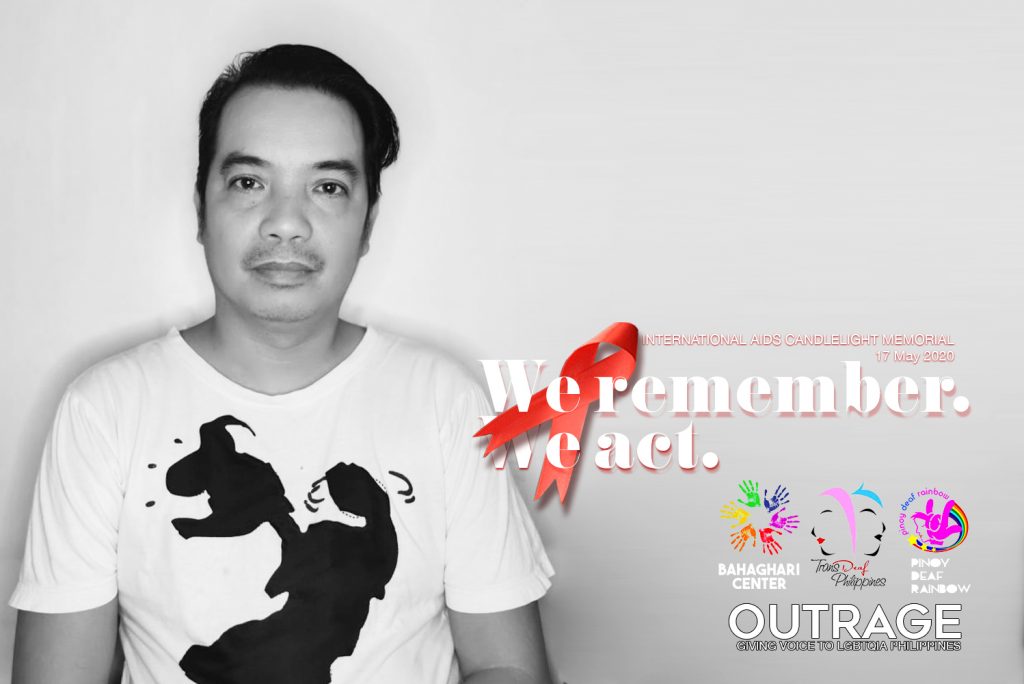
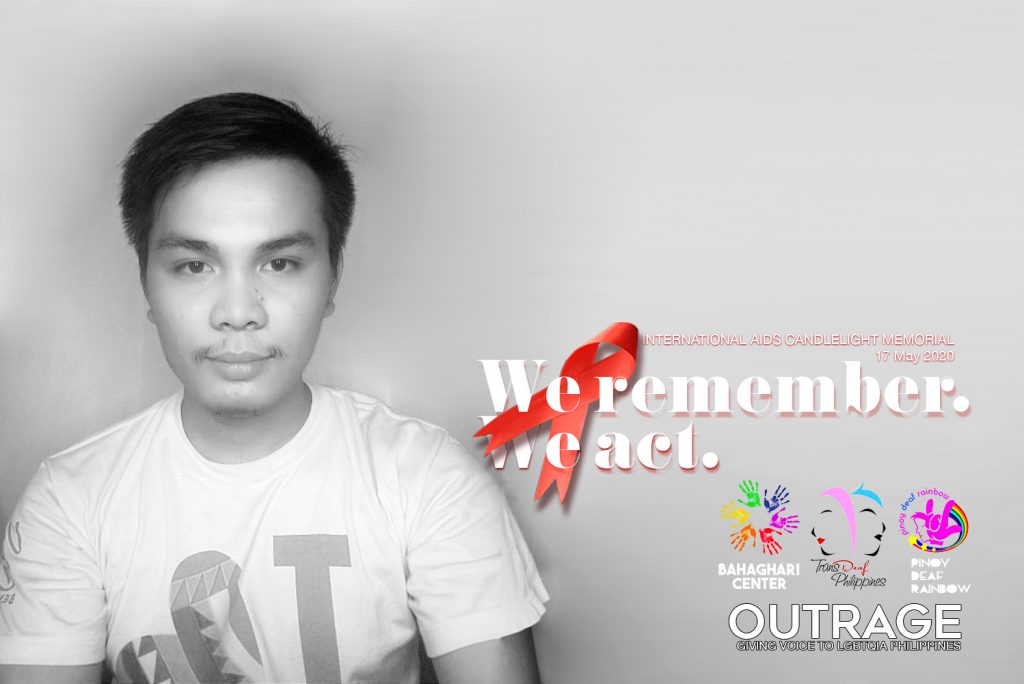
CONTINUING THE STRUGGLE
Tan urges more action.
“From HIV testing to linking those who test positive to treatment/care/support services to holding non-performing treatment facilities responsible for their failure to do their mandates… a lot still needs to be done,” he said.
For its part, and among its HIV-related efforts, Bahaghari Center – with Outrage Magazine, The Project Red Ribbon, Pinoy Deaf Rainbow and TransDeaf Philippines – trained Deaf Filipinos on community-based HIV screening. This was because of the lack of readily available HIV counselors who know of Filipino Sign Language (FSL). This way, “we empower Deaf Filipinos to start testing among themselves, instead of relying on Hearing people who may not always be there for them.”
And then backed by Youth LEAD and Y-PEER (Asia Pacific Center) – which eyed to address Sexual Reproductive Health and Rights (SRHR) needs of Young Key Populations (YKPs) in Asia and the Pacific – Bahaghari Center released PSAs on HIV for Deaf Filipinos.
For Fritzie Caybot Estoque, past president of MOCAN – an organization providing support to HIV-infected and -affected Filipinos in Mindanao: “We can’t afford to be complacent. We need to do more.”
Estoque – like Johnson – noted how the Covid-19 pandemic “has taught us one good lesson – that stigma and discrimination can do harm more than the disease itself.” And so she calls for people to “end it.”
“To make us more compassionate, extensive and effective, education is still a must both for HIV… and (in this case, also) Covid-19. We can’t afford to be complacent. Still. All the more,” Estoque said.
And so for Tan, “yes, let’s remember – the people whose lives were cut short by HIV, the advocates who paved the way and those who continue working to curb HIV, etc. But let this also be a call for us not to stop now.”
